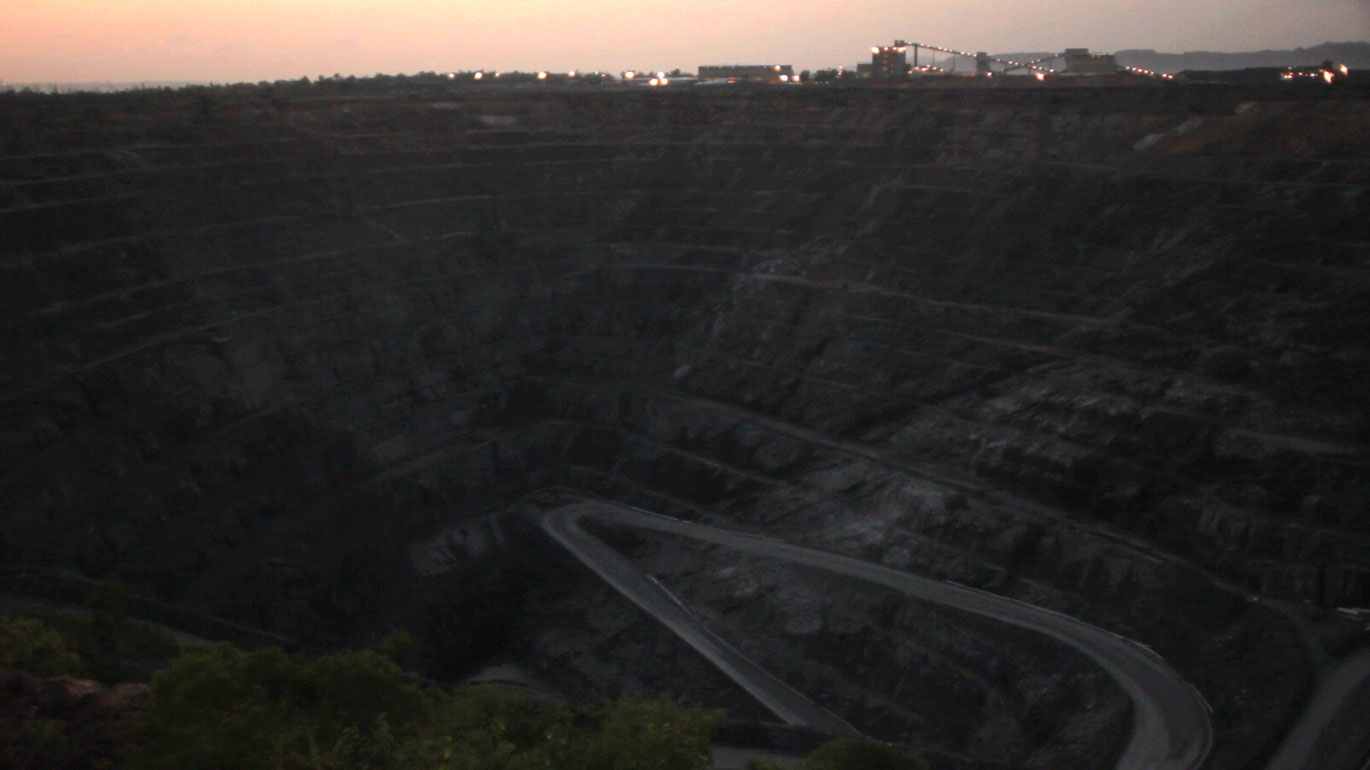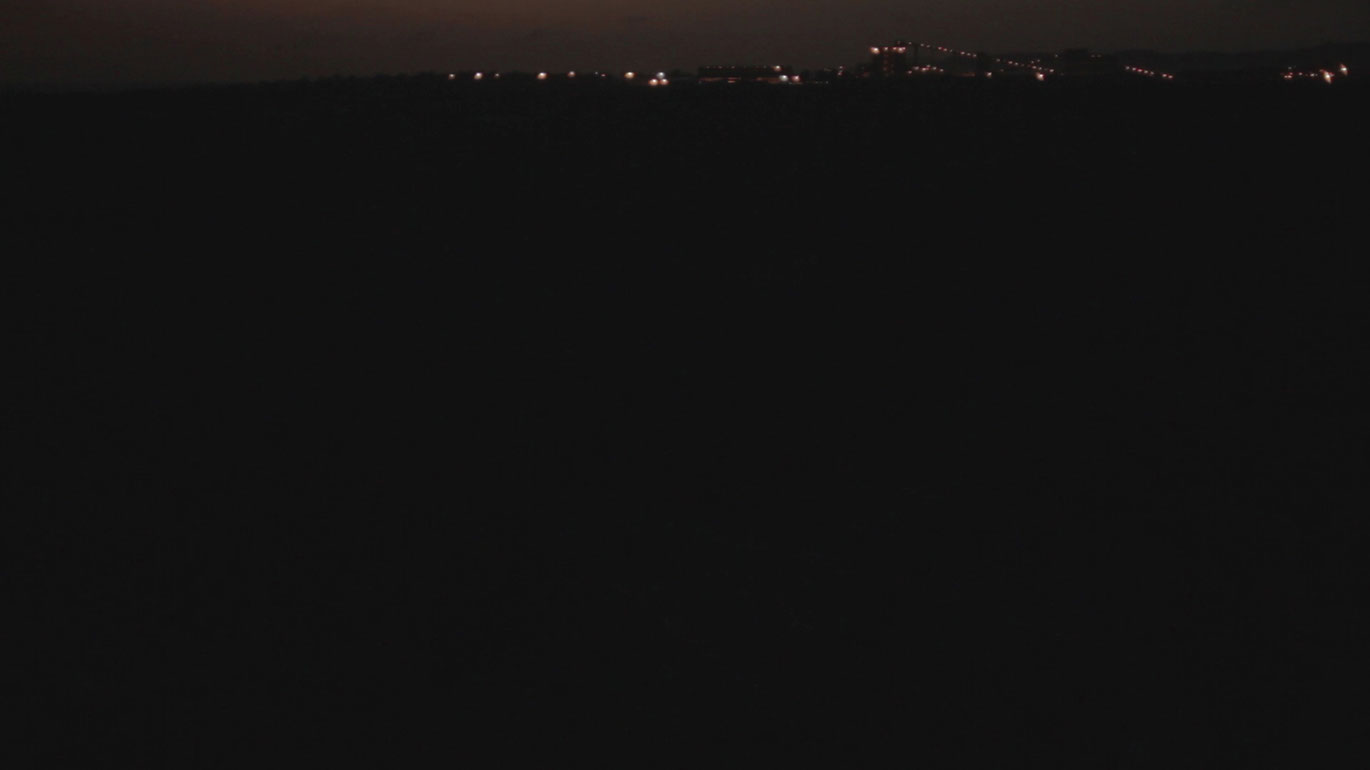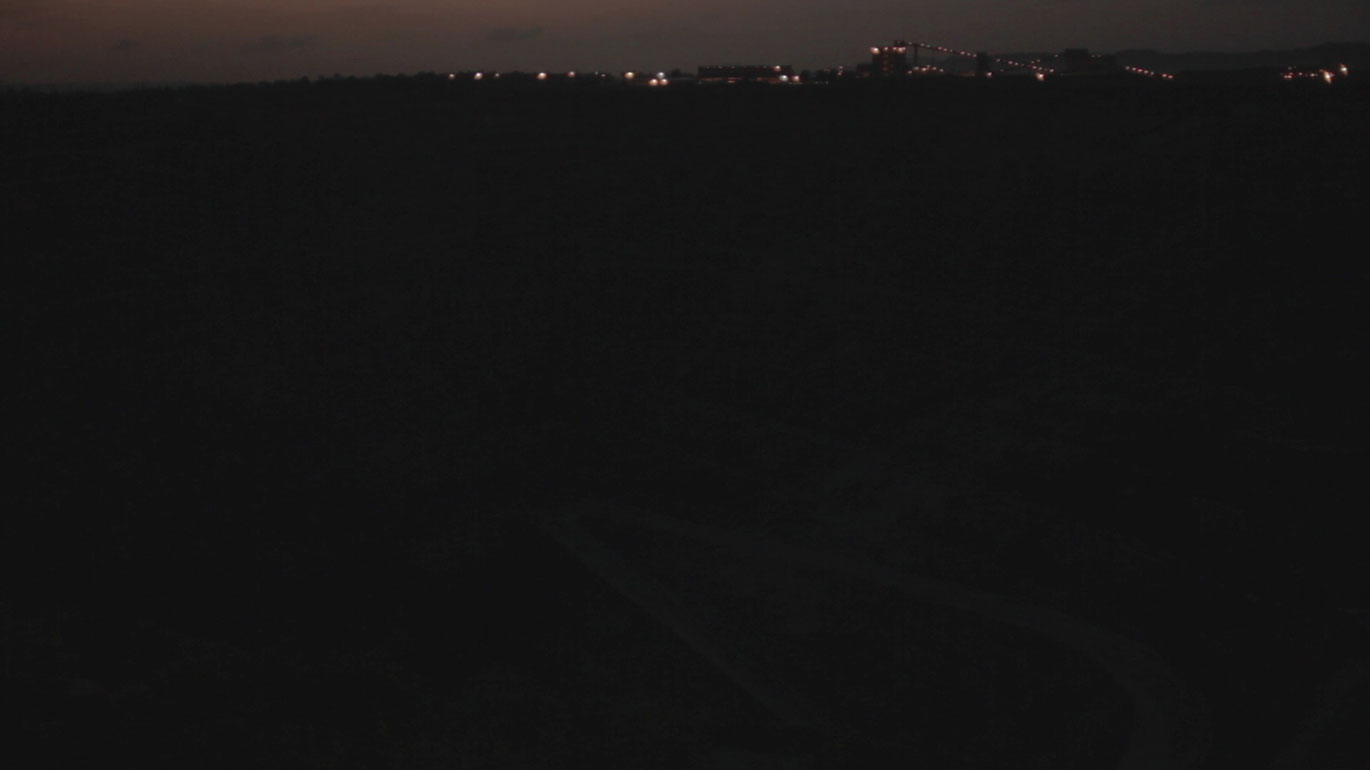Double Dawn
Lukas Marxt film is directed into the darkness of the landscape. What we see is a 30-minute static shot, in which silence spreads: an illuminated factory area on the horizon, otherwise just blackness, stretched flat and wide like a canvas. The cycle of the sun dictates the dramaturgy of the film. We experience a sunrise, and shortly after, the onset of a solar eclipse in real time, filmed over the Ranger uranium mine in Australia. While the image takes its time to illuminate, the viewer is thrown into a state of expected, condensed emptiness. In this double movement of becoming, the sunrise and the genesis of an image, nests the category of permanence. After some time, the red of the dawn can be distinguished on the horizon. The gaze is slowly released to a massive crater, carved in the earth, which, a few minutes later, slips back into the night. As the sun reveals the landscape, after a brief hesitation, the film stops.
Double Dawn stretches its media reflection between elementary oppositions. Between the area submerged in darkness, and the light of the dawning sun; between reality and fiction. For in the image of the double sunrise, which is noted on the silent sediments of the radioactive elements, the narrative of post-apocalyptic staging is formed. The mine, as a wound beaten into the ground, conjures all too well the association with a meteorite or nuclear disaster. Only though the audio track is the viewer linked back to reality. You can hear the sounds of the surrounding area: crickets chirping, bird song, as well as Geiger counters and the steps of the filmmaker in the background. The result is a crystalline image, in which, the lucid relationship of real setting and fiction begins to shimmer.
Marxt provokes the paradox of an unexcited awe in ignorant viewers – a confusing game between the concrete and undetermined. Subtle and patient, beyond the usual media excitement and with a passing gesture, this cosmic event is held, in an image that is directed into the depths of the earth rather than towards heaven. Sensual Realism and the sphere of the surreal collide in this spectacle of nature, as if it were anarchic magic.
(Shilla Strelka)
Translation: Ellen Simmons
"In the case of Double Dawn, the idea was to get there a few weeks before to research and location scout in the zone of total eclipse. I arrived and the beautiful landscape of Australia was in front of me. Before shooting, though, I asked myself what exactly the shot would tell us. I realised it would just capture the event. It became clear to me that I needed to find a point where humans and nature met—a crossover. We were lucky to be able to enter the uranium mine and get a permit to shoot, but, in the end, the staff at the mine left us totally alone. Although they promised us everything in the beginning, they arrived late on the day of the eclipse and only took us to one area. We had to make changes to the plan, though I’m happy with the result. It’s not a spectacular shot in the image—it’s much more about the experience of sitting there for a half hour and noticing the little shifts in light. The sound was also very important, though we made some small touches afterward. The moment the eclipse took place the animals went silent because they had gone to sleep. We amplified this phenomenon in the sound mix."
(Lukas Marxt interviewed by Julian Ross, In: BOMB Magazin, 16.4.2015)
Double Dawn
2014
Austria, Germany
30 min 52 sec



